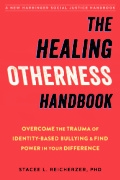You know your skills, the type of work you enjoy, and the job environment you need in order to thrive. You have a limit of how far you prefer to commute, salary and benefits requirements, and the hours you’re willing to work. If the stars aren’t aligning for you, it’s probably time to be on the search. To help you with that, I’ll discuss in today’s blog how to put together a resume package that commands attention.
As I’ve talked about in other blogs, the job market has changed substantially over the last 20 years. Where once employees sought a company that they planned would provide a ‘job for life,’ layoffs and industry changes, many brought on by internet technology, have taught us that things do not stay the same. The smart professional is nimble, resume-ready, and plugged into networking sites that provide the pulse on possibilities. How does one best proceed when a plum job opens?
-
Know the organization and the position: Do research ahead of time on the institution and its mission, its structure, whom it serves and how. If it’s publicly-traded, check its stock performance.
Also, an essential part of a job search is finding somewhere that you want to go to work every day. Look at the culture, read reviews about people’s workplace experiences; or better yet, talk to current or former employees and learn firsthand what they think of the place.
-
Know the job for which you’re applying: Read carefully and be certain that it’s something for which you are fully-qualified. Don’t front. If the job requires Spanish customer service skills and you have halting Spanish that you last used at a hotel in Cancun two years prior, you don’t qualify and are wasting your time and the recruiter’s.
-
Know thyself: Unless you are desperate for a job, don’t go for something that isn’t the type of work you enjoy. It’s important to know the difference between what you’re good at and what you actually like. If you’re good at data analysis and well-versed in how to use Excel but absolutely hate crunching numbers because it bores you, you don’t want that to be the main focus for your job. You’re better to shoot for a job in which the description promises more of the things you enjoy, professionally.
-
Be sure your relevant skills are reflected in your resume or CV. Look at what you’ve got and edit for content. You probably have a lot of jobs you’ve done and things you’ve learned, but if they aren’t going to demonstrate your match to the job for which you’re applying, they’re wasted space on the resume.
-
Write a great cover letter. Don’t send a generic one to every organization. Those get ditched! Instead, call out those items from your resume that really show you’re best work in light of the job for which you’re applying. Consider your unique qualities and connect them to the job qualifications.
If you have an example of how your great stuff resulted in something amazing, use it: “In my most recent work as a team leader, I was assigned a group who had consistently poor sales performance. I was able to offer weekly 1:1 coaching for each member, clarifying expectations and ensuring their access to needed information that helped drive and close their sales. Within 3 months, we were the 3rd highest-performing team in….” That sort of thing is a strong indicator of what you can do.
For more advice on what to include in your cover letter, visit https://www.arcresumes.com/ and read about their services, which includes support with writing impressive and professional cover letters.
-
Follow all application instructions to the letter. If the job requires recommendation letters, a) give the people you ask at least a week; b) only ask people who can best speak to the skills that match the job for which you’re applying.
-
Before you submit, proofread. Though it may seem silly, read over your work out loud. I do this with each thing that’s going to represent me (like this blog). It works! We all make typos and grammatical mistakes. Nothing kills a job candidacy quicker than a poorly-edited resume package.
If you have a trusted friend who’s particularly good at editorial details, have her or him look over your resume information.
-
If you put together your best application package and don’t get called, do not despair. Maybe there was another person whose work experience was more specific to the job, or they had a degree or certification that provided a special type of training.
If a recruiter does contact you to advise that you weren’t selected for an interview, try to get concrete feedback on what was needed that you didn’t have. This will help you understand the job market for the industry in which you’re conducting your hunt, allowing you to sharpen your skills.
I hope these tips were helpful. Next week, I’ll talk about the interview process, and how to get your own fears out of the way in prepping for it.

